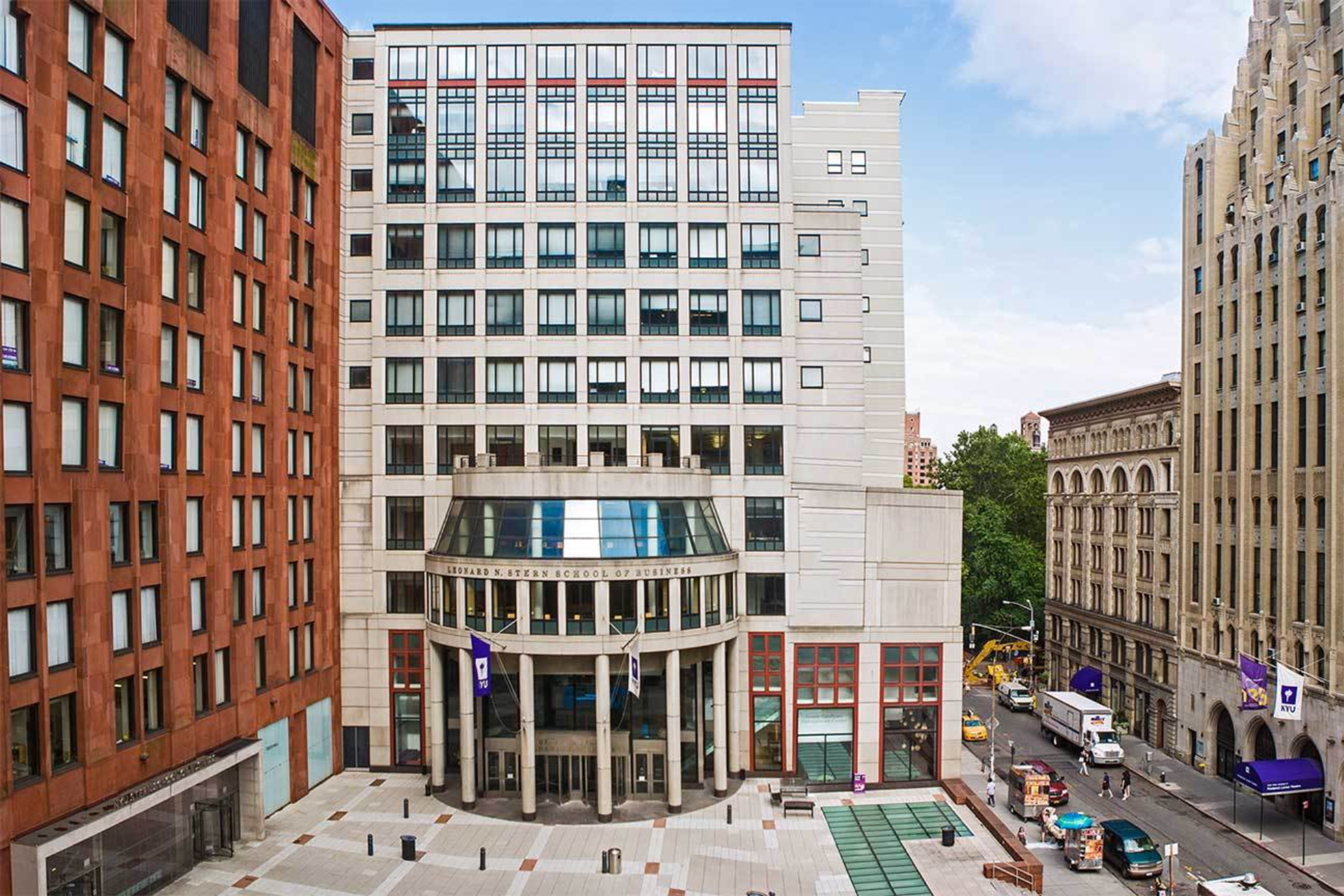How to Ace Your Harvard Medical School Interview
Prepare for success with this ultimate guide to the Harvard Medical School interview. Learn about the process, common questions, and preparation tips to stand out to the admissions committee.
Posted March 6, 2025

Table of Contents
Preparing for your Harvard Medical School interview is one of the most important steps in the admissions process. The interview offers a chance for the admissions committee to learn more about your experiences, skills, and potential fit within the Harvard community. According to the admissions office, while the absence of an interview will not necessarily harm your candidacy, it is still a crucial opportunity to showcase your strengths. Here’s everything you need to know to make the most of this opportunity.
What the Harvard Medical School Interview Means
The HMS interview is a critical component of the admissions process. Alumni interviewers conduct interviews, playing a key role in this process by arranging interviews based on the availability of local alumni. It gives the admissions committee insight into your personality, problem-solving skills, and how well you align with the values of HMS. They want to know you as a future medical professional and as a person. This stage is about more than your accomplishments—it’s about how you think, how you communicate, and how you connect with people.
How to Ace the Harvard Medical School Interview
The Harvard Medical School interview is a vital step in the college admissions process, designed to evaluate your alignment with the school’s mission and assess whether you have the qualities needed to excel in medicine. The interview also assesses critical thinking skills among other qualities. Thorough preparation is key to standing out as a candidate. Here are actionable steps to help you succeed.

Preparing for Harvard's Interview Process
1. Research the School
Understanding Harvard Medical School’s mission, values, and unique approach to education is crucial for applicants. Your research demonstrates your commitment to becoming a part of the Harvard community and helps you frame your answers in a way that resonates with the admissions committee.
- Learn the mission – HMS’s mission centers on improving human health and alleviating suffering through leadership in medicine and science.
- Explore the curriculum – Research the Pathways Curriculum, which integrates active learning, early clinical experience, and opportunities for faculty-mentored scholarly projects.
- Advanced clinical components that focus on higher-level clinical experiences and scientific knowledge.
- Understand key features –
- Clinical Clerkships and clinical electives in world-renowned hospitals.
- Cutting-edge research programs and facilities.
- A culture of collaboration and innovation.
Being able to begin to reference these specific aspects during the interview will show your genuine interest in HMS.
2. Review Your Application
Your university application is the foundation of the interview, and you should be prepared to discuss every aspect in detail. Interviewers may ask questions about your personal statement, extracurricular activities, and academic achievements.
- Reflect on key experiences – Be ready to discuss what inspired your passion for medicine, the challenges you overcame, and the lessons you learned along the way. Additionally, be prepared to discuss your application with an alumni interviewer.
- Highlight your growth – Use your application to illustrate your development as a student and future medical professional.
- Prepare for specific questions – For example, if you mentioned a research project, think about how you can explain its significance and your contributions clearly.
By thoroughly understanding your application, you’ll expect to be equipped to answer questions confidently and connect your experiences to HMS’s mission.
3. Practice, Practice, Practice
Mock interviews are one of the most effective ways to prepare for the HMS interview. Repeated practice helps you refine your answers, improve your confidence, and identify areas for improvement.
- Simulate the Real Experience:
- Have a mentor, coach, or trusted advisor act as the interviewer.
- Practice answering common questions about your motivations, problem-solving skills, and experiences.
- Specifically, practice for a Harvard interview to understand its unique expectations and format.
- Seek Constructive Feedback:
- Pay attention to feedback on your clarity, tone, and body language.
- Use this input to make adjustments and improve your delivery.
- Time Yourself:
- Ensure your answers are concise and fall within a reasonable timeframe to maintain the interviewer’s attention.
Mock interviews also allow you to practice your ability to stay composed and adapt to unexpected questions.
Access videos, templates, and examples to perfect your essays, resumes, and application prep. Start your free trial today and take the first step toward success!
Expert Tips for Success
- Stay updated on HMS news – If Harvard Medical School has recently published noteworthy research or launched new initiatives, mentioning these during your interview can demonstrate your engagement with the institution.
- Understand virtual interview dynamics – If your interview is conducted virtually, ensure your setup is professional, with good lighting, clear audio, and a stable internet connection. Practice maintaining eye contact with the camera to simulate in-person interaction.
- Develop thoughtful questions – Prepare questions for your interviewer about HMS’s programs, such as, “How does HMS support students interested in combining research with clinical practice?”
- Be authentic – Be yourself. Showcasing your genuine personality and passion for medicine will make a lasting impression on the admissions committee.
- Listen carefully – Demonstrate active listening skills by maintaining eye contact, nodding, and asking relevant follow-up questions. Show the interviewer that you value their perspective and are engaged in the conversation.
- Use body language to show confidence – Exude confidence through your body language. Sit up straight, maintain good posture, and avoid fidgeting. Additionally, don't forget to smile and maintain a friendly demeanor throughout the interview. During your interview sessions, making a positive and lasting impression is essential.
Read: Harvard Medical School: Admission Requirements and Application Process
Common Interview Questions and Strategies
"Why do you want to pursue a career in medicine?"
This question allows you to showcase your passion for medicine. Instead of providing a generic response, share a personal story or experience that motivated you to pursue a medical career. Emphasize your desire to make a positive impact on patient's lives and contribute to the field.
For example, you could talk about a time when you witnessed the compassionate care provided by a healthcare professional during a family member's illness. Discuss how that experience inspired you to dedicate your life to medicine and provide the same level of care and support to others.
"Tell me about a challenging experience and how you handled it."
Highlight a specific experience that demonstrates your resilience, adaptability, and problem-solving skills. Discuss the challenges you faced, the actions you took to overcome them, and the valuable lessons you learned along the way.
For instance, you could talk about a time when you volunteered in a resource-limited community and faced numerous obstacles in providing healthcare. Share how you collaborated with local organizations, improvised with limited resources, and ultimately made a positive impact on the community's health.
"How do you handle stress and pressure?"
Outline healthy coping mechanisms you rely on when faced with stress. Whether it's engaging in physical activity, practicing mindfulness techniques, or seeking support from others, emphasize the importance of self-care and maintaining a healthy work-life balance.
Additionally, you can discuss how you prioritize self-care to prevent burnout and ensure you can provide the best care to your patients. Highlight any activities or hobbies that help you relax and recharge, such as painting, playing a musical instrument, or spending time in nature.
Read: Key Questions to Ask During Your Medical School Interview and Mastering Medical School Interviews: Questions and Strategies
What to Do After the Interview
Send a Thank-You Note
It’s important to follow up with your interviewer within 24 hours to express gratitude for their time and the opportunity to discuss your candidacy. A personalized email is best—mention specific topics or points discussed during the conversation to show genuine engagement and attentiveness. For example, if you talked about a particular research interest, program feature, or shared experience, reference it briefly. A thoughtful thank-you note not only reinforces your interest in the program but also leaves a positive impression on the admissions team.
Reflect on Your Performance
After the interview, take some time to evaluate your performance. Think about what went well—such as your ability to articulate your goals, demonstrate your passion, or respond confidently to challenging questions. At the same time, identify areas where you could improve, such as clearer communication or deeper knowledge of certain topics. Use these insights as a learning opportunity to fine-tune your approach for future interviews, whether they are for this school or others. Reflection is a key step in growing as a candidate and improving your confidence.
Admissions Committee Decision Timeline
Admissions decisions are typically communicated a few weeks after the interview. While waiting, avoid becoming overly focused on the outcome of a single interview. It is important to note that the outcome of the Harvard interview can significantly influence the admissions decision, as it provides the admissions committee with a deeper understanding of the candidate. Instead, channel your energy into preparing for upcoming interviews at other institutions. Use this time to further research schools, refine your answers, and engage in meaningful activities related to your chosen field, such as volunteering, research, or professional development. Staying productive will not only help you maintain focus but also provide additional experiences to discuss in future interviews or updates to the admissions committee.
Work with Medical School Admissions Coaches
Get personalized advice on essays, interviews, and application strategies to help you stand out and achieve your goals.
Final Thoughts
Your Harvard Medical School interview is an opportunity to show the admissions committee why you are not only a strong candidate but also an ideal fit for their program. By preparing thoroughly, presenting yourself authentically, and staying focused on your goals, you can confidently approach this critical step in your journey to becoming a physician.
FAQs
How many people get interviews at Harvard Medical School?
- Harvard Medical School invites approximately 800 applicants for interviews each admissions cycle. This represents a highly selective group chosen from thousands of applications, emphasizing the importance of excelling during the interview.
What does it mean if Harvard gives you an interview?
- Receiving an interview invitation from Harvard Medical School indicates that you are among the top candidates in their applicant pool. It means the admissions committee sees potential in your application and wants to learn more about your experiences, motivations, and fit for the program. While it’s a positive step forward, the interview is a critical component in determining admissions decisions.
Are Harvard Med School interviews online?
- Yes, many interviews at Harvard Medical School are currently conducted virtually. This allows applicants from across the globe to participate without needing to travel. Ensure you have a professional virtual setup with good lighting, reliable internet, and minimal distractions.
Can I get a $100 scholarship at Harvard Medical School?
- Harvard Medical School does not offer small scholarships like $100. However, they provide significant financial aid packages tailored to individual needs. These packages often include grants, scholarships, and loans to help cover the cost of tuition and living expenses, ensuring access to education for qualified students regardless of financial background.
Related Articles
For more specific guides, check out these resources:
- Harvard Medical School Requirements: What You Need to Apply
- Is Getting a Medical School Interview a Good Thing?
- Medical School Post-Interview Acceptance Rate Overview
- Top 25 Free Resources for Your College Application
- 3 Expert Tips for Applying to College
- How to Crack the "Why This School?" College Essay: 5 Tips for Success
- What Looks Good on College Applications? 6 Tips to Make Your Application Stand Out
- Top Questions to Ask a College Admissions Officer
- Most Common University Interview Questions & Sample Answers
- A Comprehensive Guide to the Ivy League Schools--and How to Get In
- How to Navigate the College Application Process as a First-Generation Student












